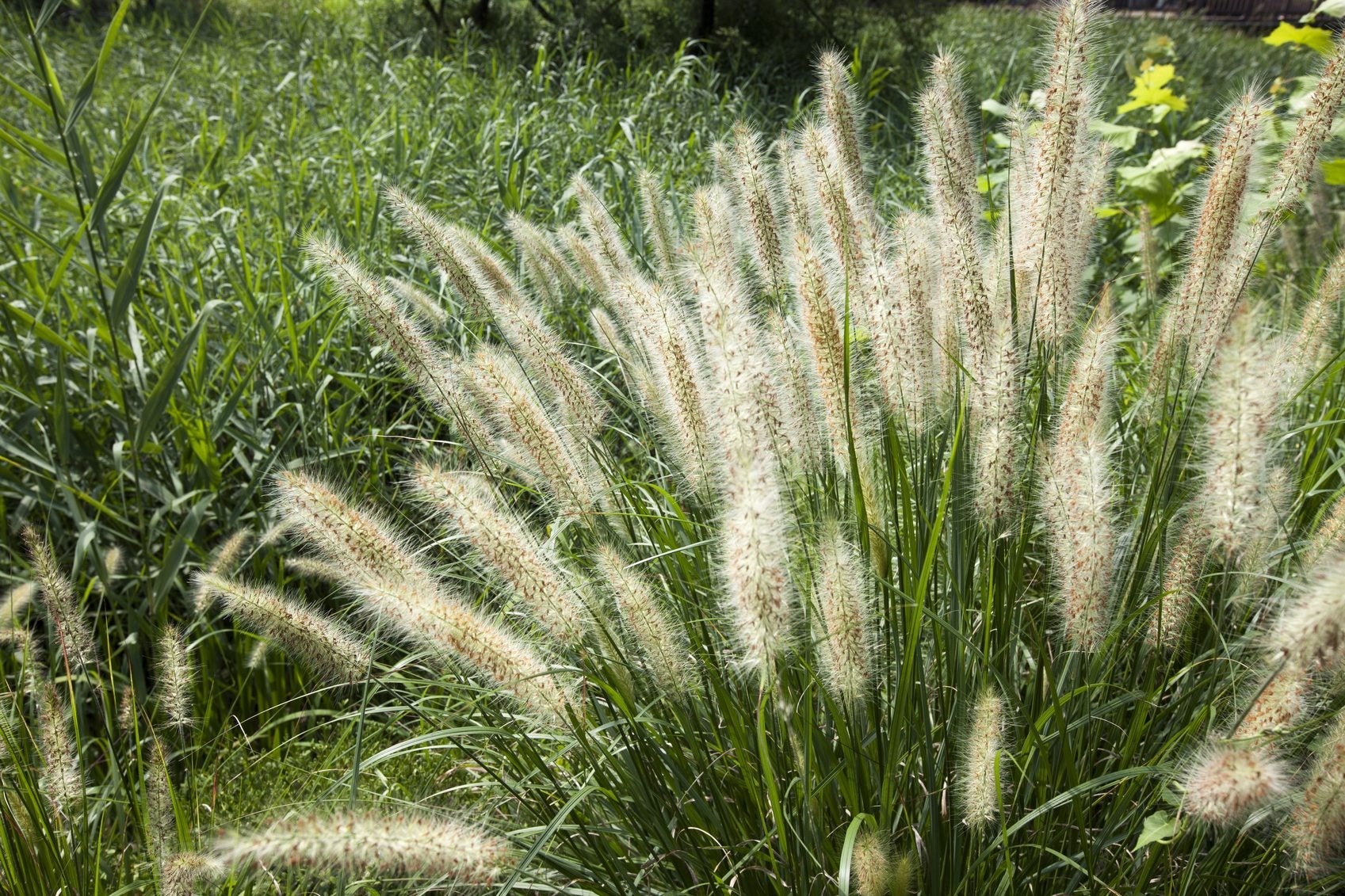Fertilizing Fountain Grass – When And What To Feed Ornamental Grasses


Ornamental grasses are unique in the landscape for their versatility, ease of care, and hypnotic movement. Fountain grasses are one of the more appealing of the group, with elegant, plumed inflorescences and arching foliage. These splendid plants are low maintenance, which adds to their appeal. Fountain grass feeding is a rare chore because ornamental grasses like these thrive in low fertility areas. However, let the appearance of the plant be your cue and fertilize only when color and leaf health are indicative of nutritional scarcity.
Fountain Grass Feeding
Most ornamental grasses do not need to be fertilized. Container plants need occasional feeding because they are in a closed environment, but in-ground plants usually do better without extra nitrogen, which can make leaves floppy and cause excess growth and limp plants. If you feel you need to fertilize your plants, you need to learn how to fertilize ornamental fountain grass and, more importantly, what to feed ornamental grasses. Ornamental fountain grass can thrive for years in poor soil without any feeding. These grasses are different from turf grass, which has heavy nutrient and water needs. Fountain grass is a tough, hardy plant that can grow too much foliage at the expense of the lovely plumes if fed too much. Excess food can also cause an unstable plant with limp blades. In the first year, fountain grass can benefit from some organic fertilizer applied at planting time. Alternatively, the best fertilizer for fountain grass is a time release fertilizer that will last through summer and help the plant build a vigorous root system and initial form.
How to Fertilize Ornamental Fountain Grass
If you feel you must fertilize your grass, choose the best fertilizer for fountain grass. Organic fertilizers are gentle and easy for plant roots to uptake, as well as healthy for the entire garden. When choosing what to feed ornamental grasses, try organic soil amendments such as compost, leaf mold, mushroom manure, and other easily broken-down organic substances. You may also choose to use a basic 10-10-10 balanced food. Just be sure the first number isn't higher than 10, as that would add excess nitrogen and weaken the stems and blades of the grass. Once you choose the type of fertilizer you are going to use, you need to know how much to apply. The optimum time for fertilizing fountain grass is in early spring before new growth has begun.
Amounts to Use When Fertilizing Fountain Grass
A balanced fertilizer should be applied at a rate of ½ pound per 1,000 square feet (227 g. per 93 sq. m.). This is a very small amount, just enough to boost root health and flowering, but not enough to affect the foliage. Organic materials can be added as a top dressing around the root zone. They will gradually compost in and feed the roots. Time release fertilizers should be applied half strength from the manufacturer's recommendation. This will still be plenty of extra nutrients for your grass. After any application of fertilizer, always water the plant and root area thoroughly. It is not necessary to fertilize the plant every year. Once every two or three years is sufficient for these low feeders. Container plants can be fertilized once annually in spring but carefully leach soil after application. If you are in doubt about how much and how to fertilize your plant, simply leave it alone. Fountain grasses are resilient, hardy specimens who will actually thrive without extra nutrients.
Sign up for the Gardening Know How newsletter today and receive a free copy of our e-book "How to Grow Delicious Tomatoes".

Bonnie Grant is a professional landscaper with a Certification in Urban Gardening. She has been gardening and writing for 15 years. A former professional chef, she has a passion for edible landscaping.